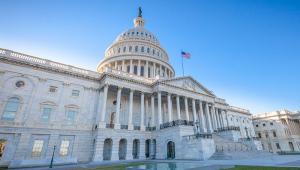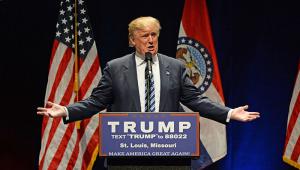Democrats and Republicans have criticised his plan to declare a national emergency – a rarely used move – to free billions of dollars to pay for the wall. This would allow him to bypass Congress, which has refused to give him the $5.7bn to build it.
On Twitter last night, the White House said Trump would sign the government funding bill, which was passed through Congress earlier this week, with just $1.35bn to fencing along the border.
But it added: “He will also take other executive action – including a national emergency – to ensure we stop the national security and humanitarian crisis at the border.”
.@PressSec: President Trump will sign the government funding bill, and as he has stated before, he will also take other executive action—including a national emergency—to ensure we stop the national security and humanitarian crisis at the border.
— The White House (@WhiteHouse) 14 February 2019
Declaring a national emergency would give the president access as much as $8bn for his plan, which was a key campaign pledge, but it is unclear where the money would come from.
Disagreement over the funding for the wall led to a 35-day partial shutdown earlier this year – the longest in US history. At the time, he also threatened to declare a national emergency.
The spending plans must be signed off by Friday, when funding for key government departments run out. According to media, Trump will sign the emergencies act at the same time.
Senior Democrats accused the president of “gross abuse of power” and said it was a “lawless act”. Several Republicans have also voiced concern.
According to the National Emergencies Act, Congress could terminate the emergency status if both houses vote to do so. But the Republican president then has the power to veto the block.
The Democrats have the majority of the House of Representatives and are likely to pass a motion to the Senate to try and block the state of emergency.
The Senate is controlled by Republicans. But it is possible the Senate also votes to block the state of emergency. Trump is then likely to veto such a resolution. Only a ‘supermajority’ – two thirds of a majority in both tiers of government - could overturn such a presidential veto.






